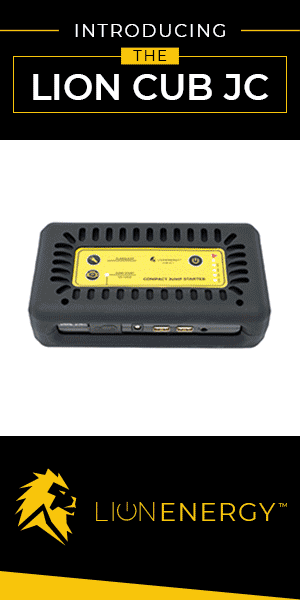Introduction
Reducing business electricity costs with solar is an efficient and sustainable solution that can dramatically lower overheads while contributing to environmental goals. If rising electricity bills are squeezing your profit margins, leveraging solar energy might be your game-changer. Let’s explore how businesses can cut costs and achieve long-term energy independence.
Why Are Business Electricity Costs So High?
Many businesses face unpredictable utility bills due to fluctuating energy prices and increasing demand. Conventional electricity sources rely on fossil fuels, which are both costly and environmentally unsustainable. Solar energy, on the other hand, offers a reliable and affordable alternative.
How Solar Energy Reduces Electricity Costs
1. Zero Cost Energy Generation
Once solar panels are installed, they generate electricity from sunlight at no additional cost. This means significant savings as your dependency on the grid diminishes. Many businesses report cutting electricity expenses by up to 70% with a well-optimized solar setup.
2. Lower Peak Demand Charges
Businesses often face high demand charges during peak hours. Solar panels can offset these costs by supplying energy during daylight hours when demand is highest.
3. Tax Incentives and Rebates
Governments worldwide offer incentives for solar installations, such as investment tax credits (ITC) or depreciation benefits. These reduce the upfront investment and accelerate return on investment (ROI).
4. Net Metering Opportunities
Excess electricity produced by solar panels can be fed back into the grid, earning credits or payments in return. This further offsets electricity costs, especially for businesses with high daytime energy production.
Key Steps to Implement Solar for Your Business
Step 1: Conduct an Energy Audit
Analyze your current electricity usage to determine the optimal solar system size. This ensures you maximize savings without over- or under-sizing the setup.
Step 2: Evaluate Your Roof Space or Land
Your business premises should have sufficient, unobstructed space for solar panels. Flat roofs and open areas are ideal for installation.
Step 3: Choose the Right Solar Provider
Partner with a reputable solar company offering high-quality panels, inverters, and warranties. Consider their experience in commercial installations.
Step 4: Explore Financing Options
From outright purchases to power purchase agreements (PPAs) and leasing options, there are several ways to finance solar without straining your budget.
Step 5: Monitor and Maintain
Invest in a monitoring system to track solar performance and ensure regular maintenance for maximum efficiency.

Benefits Beyond Cost Savings
1. Enhanced Brand Reputation
Adopting solar energy signals environmental responsibility, which appeals to customers and partners alike.
2. Predictable Energy Costs
Solar installations protect against rising electricity rates, allowing for better budget forecasting.
3. Increased Property Value
Buildings with solar installations often command higher resale or lease values due to reduced operational costs.
Common Myths About Solar Energy for Businesses
- “It’s too expensive.” Financing options and tax incentives make solar accessible even for small businesses.
- “It won’t generate enough power.” Modern solar systems are highly efficient, even in less sunny regions.
- “Maintenance is costly.” Solar panels are low-maintenance and durable, with lifespans of 25+ years.
FAQs
1. How does solar energy help reduce business electricity costs?
Solar energy reduces business electricity costs by generating free power from sunlight, lowering dependency on the grid. It can offset peak demand charges, and excess power can be sold back to the grid through net metering.
2. Is solar power a good investment for small businesses?
Yes, solar power is a great investment for small businesses. It reduces electricity bills, offers tax incentives, and increases property value. Financing options like leasing or power purchase agreements make solar accessible without high upfront costs.
3. How much can a business save with solar energy?
Savings vary based on system size, location, and energy consumption. Many businesses save 50–70% on electricity bills annually and recover their investment within 5–7 years through reduced costs and tax benefits.
4. Are there government incentives for businesses installing solar panels?
Yes, many governments offer tax credits, rebates, and accelerated depreciation (like the Investment Tax Credit in the U.S.) to encourage businesses to adopt solar energy, significantly reducing upfront costs.
5. What happens if my business generates more solar power than needed?
Excess solar power can often be sent back to the grid in exchange for credits or payments, a practice known as net metering. This can further offset electricity costs during non-sunny hours or high
6. Can solar panels work during cloudy days or at night?
Solar panels generate less power on cloudy days and none at night. However, pairing solar with battery storage or grid backup ensures consistent energy supply for your business.
7. How long do commercial solar panels last?
Commercial solar panels typically last 25–30 years with minimal maintenance. Most come with performance warranties guaranteeing 80–90% efficiency even after 20+ years.
8. How do I calculate the right solar system size for my business?
A professional energy audit assesses your business’s electricity usage, roof space, and local sunlight exposure to determine the ideal solar system size for maximum savings.
9. Are there financing options for businesses switching to solar?
Yes, businesses can choose from options like loans, leases, and power purchase agreements (PPAs). These make solar adoption affordable and can eliminate the need for large upfront investments.
10. How do I maintain my business’s solar system?
Solar systems require minimal maintenance. Cleaning panels a few times a year and scheduling professional inspections annually will keep the system efficient and long-lasting.

Conclusion: Take Control of Your Energy Costs Today
Switching to solar power isn’t just a smart financial decision—it’s an investment in your business’s future. By reducing electricity costs, taking advantage of incentives, and securing long-term energy stability, solar energy positions your company for growth and sustainability.
Disclosure: As an Amazon Associate, I earn from qualifying purchases.


